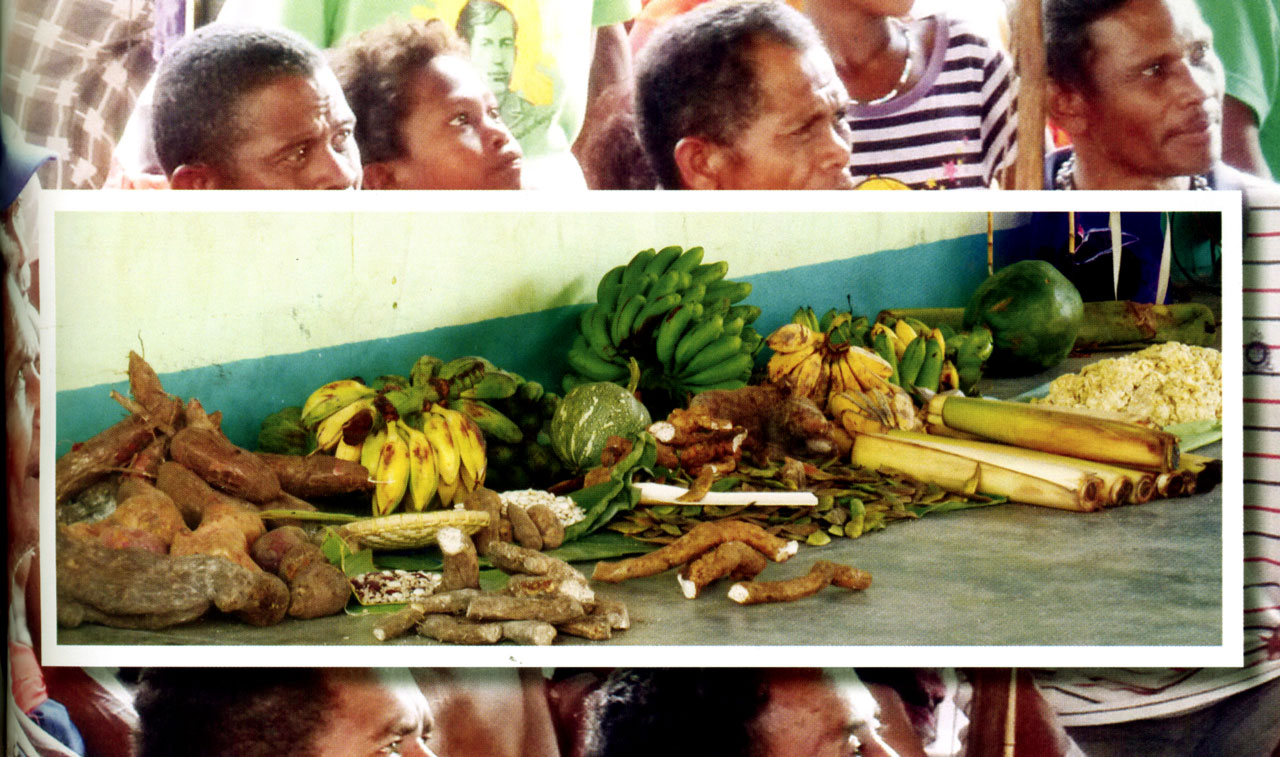Impact Stories
Mam-eh: Sharing a Shared Future
Posted on April 6, 2015
|
Project Title: Mam-eh (Sharing) Action Plan for the First Aeta Forest Foods Festival and Development Forum
Year: 2011
Grant Type: Advocacy
Site: Tarlac, Pampanga, Zambales
Proponent: Kabalikat sa Kaunlaran ng mga Ayta, Inc. (KAKAI)
|
Mam-eh is the Aeta term for sharing. It not only signifies cooperation among these indigenous peoples (IP), it evokes the true spirit of a collective society: a community with shared beliefs, traditions, and practices towards the realization of common aspirations.
The different IP groups with a hunter-gatherer background, collectively referred to as Negritos, are widely recognized as the first inhabitants of the Philippines. These ethnic groups, including the Aetas of Tarlac province, are few in numbers altogether but they are scattered over much of the country. Often marginalized, their distinctive cultures and forest-connected way of life are little appreciated by mainstream society. They possess little economic clout and political influence, even when compared to other larger or more organized IP groups.
Aetas have an exceptionally strong relationship with the forests they inhabit. Many cultural traits reflect this close affinity with nature, and their knowledge about the forests remains unsurpassed, albeit receiving no or little recognition by the mainstream population. Furthermore, their society is highly egalitarian and by tradition, decision making is inclusive.
Being hunters and gatherers, the Aetas source food primarily from the forest. Forest food, whether roasted, boiled or eaten raw is key to their diet. These foods include leaf and root vegetables including ferns and wild tubers, various fruits and flowers, palm heart, and wild mushrooms. The animal sources of food include bush meat especially wild boar, insect larvae, fish, crabs, and other aquatic animals.
The nutritional value of “organic plus” forest foods is in no way inferior to that of farm crops. In fact, recent research findings increasingly point to the superior health benefits of wild gathered food, which also has greater variety in terms of taste.

Despite the enormous nutritional and gastronomic advantages of forest food, there is a condescending attitude by the mainstream lowland population regarding the consumption of wild gathered food which is still viewed as a sign of backwardness. On the other hand, processed and comparatively nutrient-poor food items have become widely available in Aeta communities and have significantly altered their staple diets.
Despite the entry of processed food in Aeta communities, forest foods still remain as a healthy part of the Aeta diet and the related knowledge base is still largely intact amongst the members of the tribe. However, in the context of persistent erosive cultural pressures, it was timely for the festival’s prime mover, the Kabalikat sa Kaunlaran ng mga Aeta, Inc. (KAKAI), to set its affirmative action in motion by way of this food festival. This initiative is part of a larger effort to strengthen the capacity for self-determination of the hunter-gatherers of the Philippines.
The First Aeta Forest Foods Festival and Development Forum, held from April 28 to 29, 2011 in Capas, Tarlac, celebrated and highlighted indigenous knowledge and practices of food gathering and biodiversity conservation. The festival recognized the indigenous knowledge systems of both men and women coming from the hunting-gathering tradition. It offered younger generations of Aetas the opportunity to imbibe, appreciate and take pride in the traditional knowledge and practices of their elders. Aeta hunting and gathering practices and their understanding of forest resources were documented and would later serve as inputs for the communities’ ancestral domain management plan to ensure biodiversity conservation. Before the eruption of Mt. Pinatubo in 1991, Aeta IPs used to be heavily dependent on the forest. Reminding them of the importance of the forests for their sustenance would further instill the importance of conserving the remaining forests.
The forest food festival contributed to solidarity building among IP communities by facilitating the formation of informal local alliances among the Aetas of Tarlac, Pampanga, and Zambales and the Agtas/Dumagats of Quezon and by providing a forum for dialogues of cooperation. Such networks and alliances are invaluable especially in resolving issues such as land and ancestral domain, and in determining different tactics and strategies in dealing with the state.
Taking local people’s perspectives into account and giving them a greater say in planning and managing their own ancestral domain and its development are important aspects in empowering indigenous communities and in making government more accountable in terms of these issues. The festival brought together more than 300 participants from Aeta communities to discuss pressing issues with local and national government officials, including land tenure, local governance and representation.
A “gather, cook, and taste” session of traditional food from the forest took center stage during the first day. The IP participants were encouraged to share specialty food items from their respective areas. Apart from the preparation and tasting, rituals and pertinent information regarding forests foods, sustainable harvesting practices and best preservation methods were shared. In addition, participants engaged in storytelling and singing as part of the rituals related to the preparation and partaking of forest foods. Cultural expressions, including dance, sign language, and archery were performed. Vital forest survival skills, traditional medicine and midwifery of Aeta hilots were also demonstrated.
A multi-sector development forum was held on the second day. Participants came from the government sector (municipal government, Philippine Air Force, national/provincial representatives from the Department of Environment and Natural Resources and the National Commission for Indigenous Peoples), civil society, and mass media. The forum, with Aeta leaders in charge, provided a platform for the sharing of the aspirations and concerns of various IP communities, especially those related to ancestral domain security, livelihood options and health issues. The forum discussed appropriate “bottom up” terms for future collaboration with relevant stakeholders. The dynamic sharing of ideas would lead to a better understanding and appreciation of and respect for the Aetas’ rich cultural heritage as well as their rightful claim to their ancestral domain.
The project’s main proponent, KAKAI, is a service oriented organization based in Capas, Tarlac. Formed in 2004, it has five main programs—land tenure, agriculture, education, health, and spiritual development. KAKAI’s main work focuses on capacity building for Aeta communities, advocacy campaign for rights to ancestral domains, networking with other NGOs and POs, and programs for primary education.
In line with the spirit of fostering participation and constituency building, KAKAI tapped organizational partners for the Mam-eh. They include LABAYKU, a federation of Aeta Mag-ansti that is active in 8 sitios that are adjacent to that of KAKAI’s; the Samahan ng mga Katatubong Agta/Dumagat na Ipinagtatanggol at Binabaka ang Lupaing Ninuno (SAGIBIN-LN), a broad federation of Agta communities in Quezon province which is in the forefront of securing the Agta’s ancestral domain claims; and, the Non-Timber Forest Product Task Force (NTFP-TF), a collaborative network of Philippine grassroots NGOs and POs engaged with NTFPs.
* * * * *
Originally published in the Foundation for the Philippine Environment Annual Report 2011.

 DISPLAY CALENDAR
DISPLAY CALENDAR
 Read Policy Briefs
Read Policy Briefs
 View Our Partners
View Our Partners
 Access Grants MIS
Access Grants MIS
 Login to Webmail
Login to Webmail